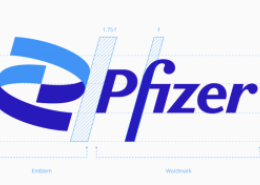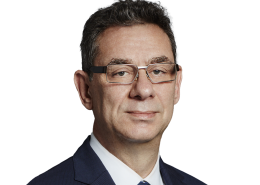Stanford Medicine Launches New Global Health Scholars Program for African Physicians
Program funded by an independent educational grant from Pfizer will foster health equity and community building through bidirectional learning partnerships
The Stanford Center for Innovation in Global Health (CIGH) launched a new Stanford Global Health African Scholars Program on Nov. 1 to promote health equity, capacity-strengthening, and unique focused learning between African medical institutions and Stanford.
The three-year program will fund 24 mid-career physicians from African countries to travel to Stanford for a six-week period, gaining a specific skill set the African scholars have identified. At the same time, they will enrich learning at Stanford by sharing their expertise with the Stanford CIGH community. They will then return to their home countries to conduct a year-long clinical improvement project focused on the skill set they acquired. A unique feature of the program is that Pfizer will then provide a grant to the scholar’s home institution to implement a project that uses their new skills. The program is funded through an independent educational grant from Pfizer and managed by CIGH, in partnership with the Stanford Center for Continuing Medical Education (Stanford CME).
This program builds on CIGH’s longstanding and successful Stanford-Yale Global Scholars program, which sends US trainees to partner sites in low- and middle-income countries to train and work alongside local clinicians. CIGH is excited to reciprocate by hosting African physicians at Stanford, advancing global health equity through true bidirectional partnerships, in which both partners learn and benefit.
“As we address the legacy of colonization in global health, it's imperative to promote equity and bilaterality, providing opportunities for our partners to train at Stanford” said Michele Barry, Senior Associate Dean of Global Health at Stanford and CIGH's director.
Stanford will host a total of eight cohorts over the duration of the program, each comprising two to three scholars. The first round of applications will open in January 2024. The initial group will commence their fellowship beginning in the fall of 2024, with a six-week visit to Stanford.
CIGH will invite mid-career academic faculty from Africa from any discipline to apply for a fully funded scholarship, which will include Phase 1 – a 6-week training with a selected mentor at Stanford to attain a new skill set, and Phase 2 – funding to support the implementation of the skills in their home institution over a 12-month period.
Once their eligibility is confirmed, applicants for the Stanford Global Health Scholarship will propose 1) a Stanford mentor to help gain or hone skills that they want to acquire while at Stanford, 2) an implementation project where they will apply their new skills at their home institution, 3) expected outcomes of their implementation project.
Applications that include any health improvement topic will be considered, but some topics could be given priority based on available Stanford expertise and identified local needs. Areas of potential focus include but are not limited to:
- Antimicrobial stewardship
- Oncology
- Vaccine uptake
- Inflammatory diseases
“Stanford CME is thrilled to accredit this innovative program that facilitates a unique exchange of knowledge and expertise between our African colleagues and our Stanford faculty, trainees, and students,” said Daryl Oakes, MD, Associate Dean of Post Graduate Education.
“Equity is embedded in our corporate values and core to Pfizer. Our goal to improve global health equity cannot be accomplished alone. That is why we are thrilled to support Stanford Medicine in this important capacity building initiative, that will help close gaps in delivery of healthcare and skills and can bring about sustained impact in areas critical to the health of the people in Africa,” said Dr. Aida Habtezion, Senior Vice President, Chief Medical Officer and Head of Worldwide Medical and Safety at Pfizer.
The three-year program will conclude with a convening to share impact and lessons learned, scheduled to be held in Africa.
“We are hopeful that this initiative will have a profound impact on fellows' futures as physicians and on patients in their home countries. We also look forward to learning from our visiting scholars,” Barry added.
This initiative is just beginning. CIGH will share further details on the program web page and in upcoming newsletters. If you would like to receive updates as the program develops and learn when the request for applications launches, please sign up for our Stanford Global Health African Scholars Program listserv.
About CIGH:
Stanford’s Center for Innovation in Global Health envisions a world where everyone lives a healthy life, on a thriving planet. We enable emerging leaders and multidisciplinary researchers to solve global health challenges and improve health equity. We provide faculty, staff, and students with the resources, knowledge, and support needed to create a large-scale impact. Leading through research, education, advocacy, and community building at Stanford, our work is focused on three main areas: Human and Planetary Health, Women’s Leadership in Global Health, and Refugees and Vulnerable Populations.
###








